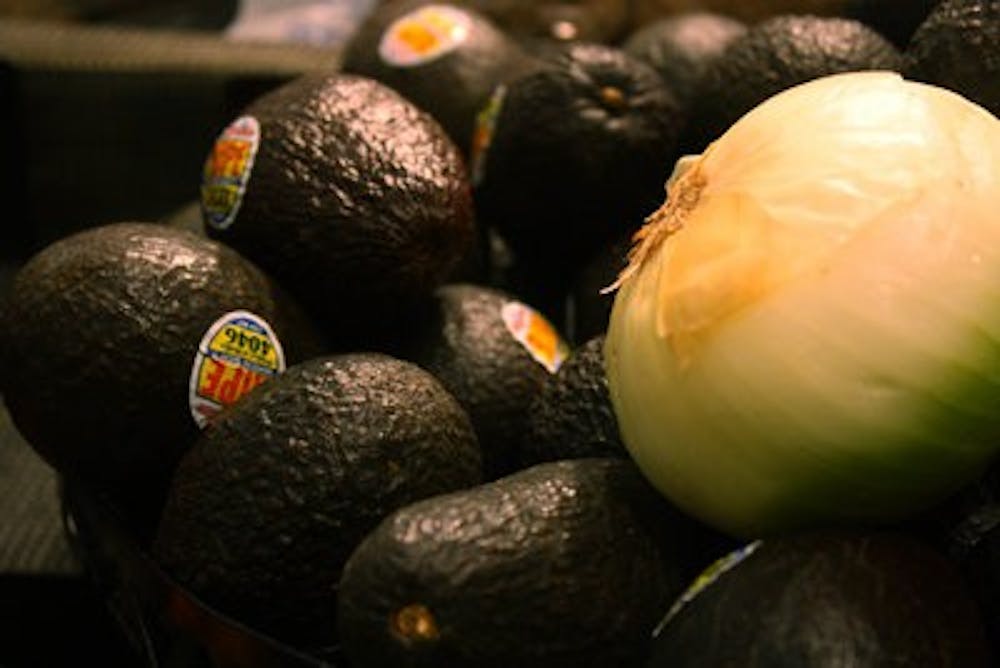Washcloths? Bad.
Grapes? Worse.
Lilies? Deadly.
These are a few of the items that pet owners should prevent pets from ingesting because of complications including allergic reactions, damage to organs and even seizures.
"Pets should not be eating people food at all," said Cindy Gibson, office manager at Countryside Veterinary Clinic in Auburn. "Grapes, onions, chocolate, avocado and raisins are things that are toxic and can kill animals."
Grapes and raisins can cause fatal kidney disease or acute kidney failure in some dogs and cats, said Jennifer Koehler, resident in pathobiology at Auburn University's College of Veterinary Medicine.
Aside from toxicity, table foods can cause other health problems in pets, Koehler said.
"Table food can also lead to obesity and renal disease," Koehler said.
Animals that eat an excessive amount of fatty foods can get acute pancreatitis, Koehler said. Since the pancreas has enzymes that are responsible for fat digestion, eating a sudden fatty meal can lead to abdominal pain, vomiting, diarrhea and possibly death.
Certain household items can be harmful to furry friends, too.
Andrew Marshall, freshman in wireless engineering, owns a golden retriever who found an unusual snack.
"For whatever reason, Miss Holly likes to eat green washcloths," Marshall said. "One time, she ate one and tried to poop it later, but it wouldn't quite come out."
Marshall said he did not know if he and his parents should try to help her, but they decided to let nature take its course.
"It was pretty disgusting," Marshall said. "Holly kind of learned not to eat green washcloths after that."
In a similar tale, Daniel Foree, senior in fisheries, had to rescue his red heeler from an unexpected run-in with rat poison.
"I went over to my uncle's shop to do some wood work, and I didn't know my uncle put out rat poison," Foree said. "Then, I noticed my dog was getting really sick."
Foree said he found a stool sample in his uncle's garage and noticed it was green and had little pellets in it, so he rushed T-Roy to the vet.
"Luckily, they caught it in time and were able to flush out his system," Foree said.
Storing poisons, pesticides and medications in a closed, out-of-reach compartment and checking areas for possible toxins can help to prevent accidental poisoning in pets.
"Women who are taking birth control pills should make sure not to let their dogs accidentally get a hold of them," Koehler said. "Some of those pills contain estrogen that can cause bone marrow toxicity, which affects blood cell production."
Pet owners also should be wary of certain plants that can cause dangerous symptoms if ingested.
Peace lilies, oleander and poinsettias are only a few of the species of plants that can be harmful to animals, Gibson said. Lilies, even in small amounts, can cause kidney failure in cats, while oleander causes gastrointestinal irritation.
"(Symptoms to look for) are white foam at the mouth, vomiting, bad diarrhea and lethargy," Gibson said.
If a pet owner notices any abnormal symptoms or behavior in an animal, he or she should call the American Association of Poison Control Centers first, Gibson said. Then, he or she should take the animal to the veterinarian's office.
Supplying pets with a proper diet and monitoring what they eat can help them stay healthier longer.
Do you like this story? The Plainsman doesn't accept money from tuition or student fees, and we don't charge a subscription fee. But you can donate to support The Plainsman.




